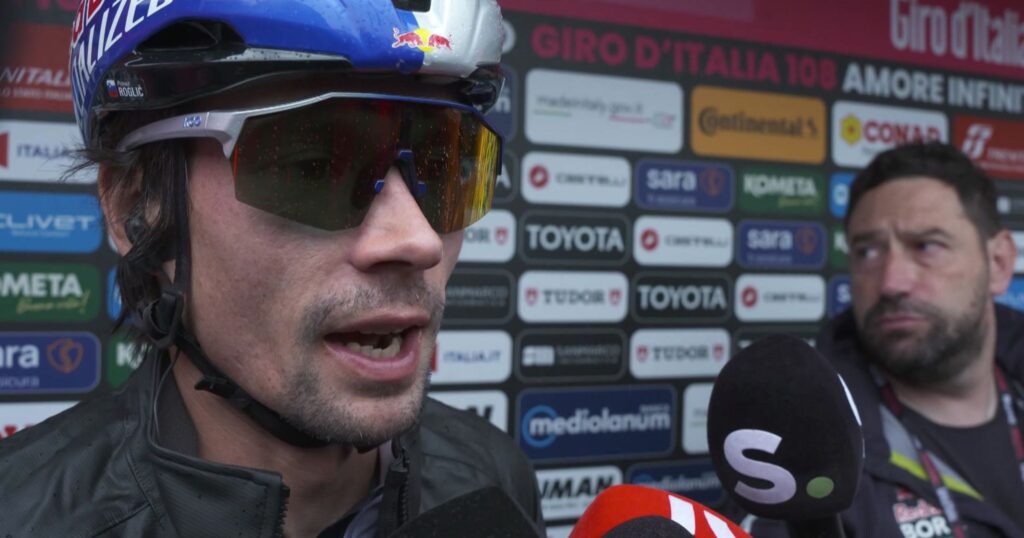The Giro d’Italia, one of cycling’s most prestigious Grand Tours, has come to a critical juncture, especially with the recent performance of Slovenian rider Primož Roglič. Known for his formidable presence in the peloton and past successes in Grand Tours, Roglič has found himself in a challenging position this year. Reports have indicated that he is “fighting for survival” and facing an uphill battle that seems to put him out of contention for the General Classification (GC) title.
As one of the top contenders during the early stages of the Giro, Roglič entered the race with high expectations following a series of impressive performances. His team, Jumbo-Visma, had high hopes for him, particularly given his experience and skillset, which typically positions him as a strong candidate for the overall victory in multi-stage events. Unfortunately, recent developments have not favored him, leading to questions surrounding his prospects as the race progresses.
In the latest updates, Roglič himself expressed concerns about his chance of contending for the GC. His statement “Don’t think it’s realistic” reverberates through the cycling community, as it reflects both his struggles and the broader impact these challenges could have on his team’s strategy moving forward. This admission highlights the intense pressure athletes face in high-stakes competitions like the Giro d’Italia, where one misstep can drastically alter not just individual performance but also team dynamics.
Roglič’s struggles can be attributed to a combination of factors, including the grueling nature of the Giro d’Italia. The course is notoriously demanding, featuring steep climbs and lengthy distances that test the limits of even the fittest athletes. Moreover, the competition has been fierce, with other riders—like the fast-rising star Remco Evenepoel and seasoned veteran Geraint Thomas—asserting themselves as legitimate threats for the GC title. Their relentless pursuit and tactical prowess have intensified the challenge Roglič faces, potentially pushing him further down the rankings.
The implications of Roglič’s current situation extend beyond his personal ambitions. The Jumbo-Visma team, which is known for its strong roster and strategic planning, must now reevaluate their approach in light of Roglič’s difficulties. With the loss of their leading contender for the overall classification, it may fall upon other riders within the team to step up and fill the void. This transition can often mean a shift in team dynamics, with rising stars having to increasingly take the lead and veteran riders providing support to ensure that the team remains competitive throughout this grueling race.
As the Giro moves into its later stages, key strategic decisions will be crucial for Jumbo-Visma. They will need to determine whether to preserve Roglič for future opportunities or to pivot their strategy entirely to support another rider who might still be in the running for the GC. This decision-making process often plays out against a backdrop of unpredictable circumstances, like weather, road conditions, and unexpected accidents that can alter race outcomes in an instant.
In conclusion, the current situation surrounding Primož Roglič at the Giro d’Italia serves as a reminder of the unpredictable nature of competitive cycling. Despite his previous accolades and prowess, the realities of the race can quickly shift the narrative. As fans and commentators continue to watch with bated breath, it will be intriguing to see how both Roglič and Jumbo-Visma navigate the remaining challenges of this year’s Giro d’Italia, particularly in light of Roglič’s own reservations regarding his chances in the General Classification fight. The race continues to be filled with tension, drama, and excitement, as the outcome remains uncertain for all involved.



